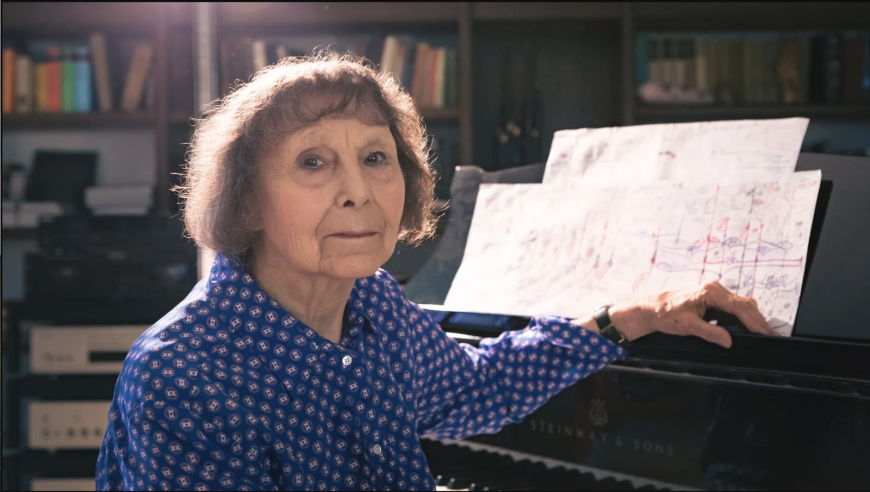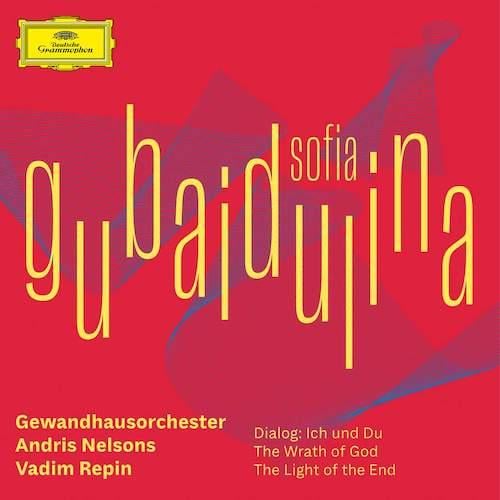
Sofia Gubaidulina turned 90 last October — and one can only guess what she may be thinking about the turn of events in her native Russia today.
When she was born in what is now the Republic of Tatarstan within the Russian Federation, Stalin’s terror campaigns were getting underway. She lived through the German invasion of the Soviet Union in World War II, the Stalinist purging of “formalism” in music, the Khrushchev thaw, being targeted as one of the disobedient “Khrennikov Seven” composers under Brezhnev, Gorbachev’s perestroika, and the breakup of the Soviet Union. Watching the evolution of modern Russia from afar while living in Hamburg from 1992 onward, perhaps Gubaidulina wonders in quiet horror if the history she experienced is now repeating itself — same script, different players.

Gubaidulina isn’t a political composer per se, for her music belongs with those of Eastern European mystics — albeit in a more modernist language than, say, that of Arvo Pärt. She remains quite creative in old age, with three powerful recent orchestral works getting first-class treatment from Andris Nelsons and his European orchestra, the Leipzig Gewandhaus Orchestra (Deutsche Grammophon). Yet at the risk of reading too much into her music, guided by a few of her own quotes, it is difficult to resist the temptation to connect it with the current troubles in Slavic lands. At least for now.
Gubaidulina’s third violin concerto Dialog: Ich und Du (Dialogue: I and You) has a solo violin (Vadim Repin) engaging in a dialogue with the full orchestra, asking each other questions that cannot be answered. Occasionally mystical bells toll. Halfway through, the drums have a pounding cadenza to themselves and the dialogue grows more heated and dissonant, though still at a relaxed overall pace. By the piece’s end, the violin and orchestra are farther apart than ever, and the piece ends on a pessimistic minor chord, as if negotiations have broken down after earlier signs of hope for a settlement have failed.
Both Dialog and the work coming right after it on the disc, The Wrath of God, are outgrowths from Gubaidulina’s 2016–2018 oratorio On Love and Hatred — and with the snarl of the low brass at the beginning of The Wrath, we are face-to-face with the Day of Judgment. Soon there is an oasis of repose, but two more waves of anger and chaos come rolling in. I can imagine this work being deliberately programmed after Dialog as a warning of what could happen when negotiations fail. “God is wrathful,” the composer said just before the first performance in Nov. 2020. “He’s angry with people and with our behavior. We’ve brought this down on ourselves.”
An earlier (2003) orchestral work, The Light of the End comes up with another conflict — the natural tuning of the horns pitted against the conventional tempered tuning of the orchestra. Again the pace is slow, the size of the orchestra huge, the atmosphere tense and foreboding, and even when the strings swirl and the pace picks up, the texture feels heavy, weighted down. The difference in pitch between the natural-pitch horn and the tempered-pitch solo cello in their duet in the center of the work is barely noticeable most of the time, but there are moments when they clash in abrasive discord. Gubaidulina sees this as “the irreconcilability of nature and real life, in which nature is often neutralized.”
Yet toward the end, the harp swirls, the solo cello takes lyrical command, the light percussion tinkles, and suddenly the title of the piece becomes a prophesy. One can only hope that this parable might apply to world events.



